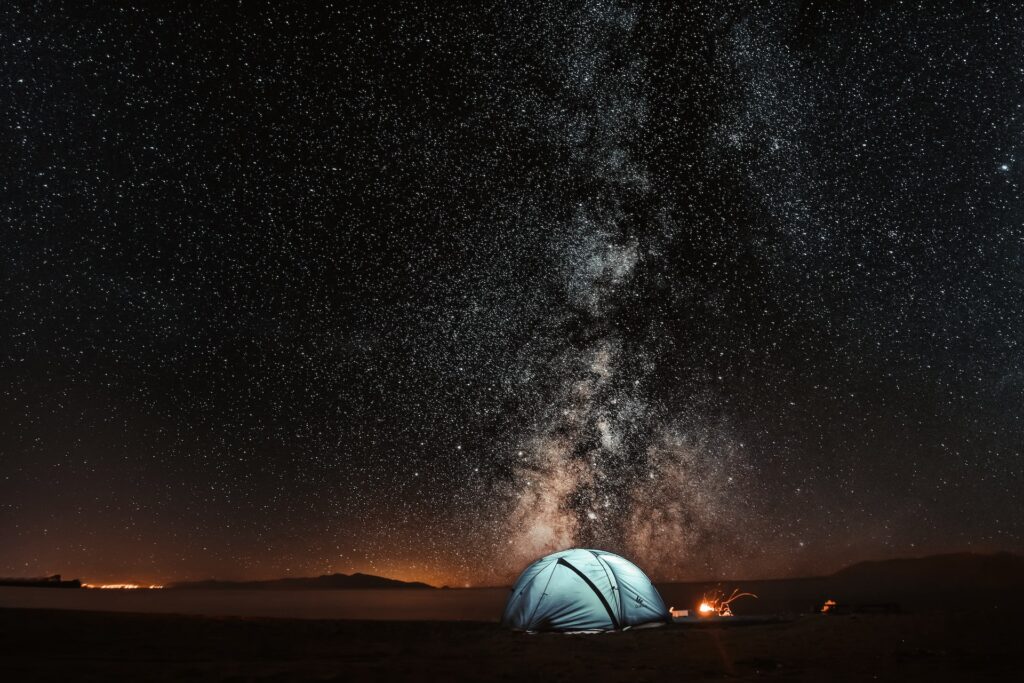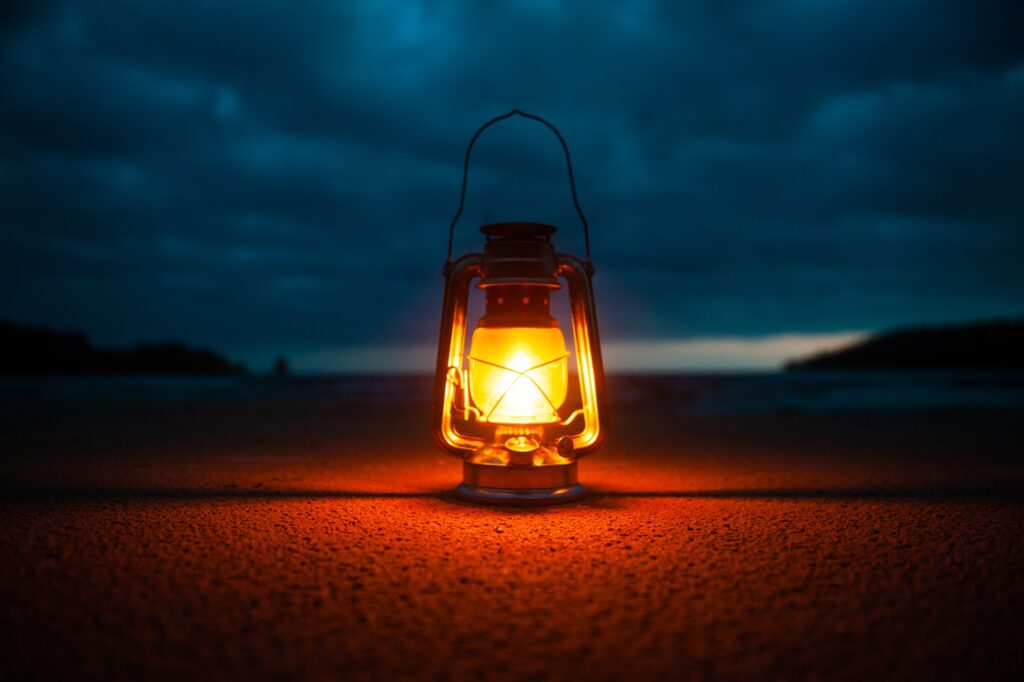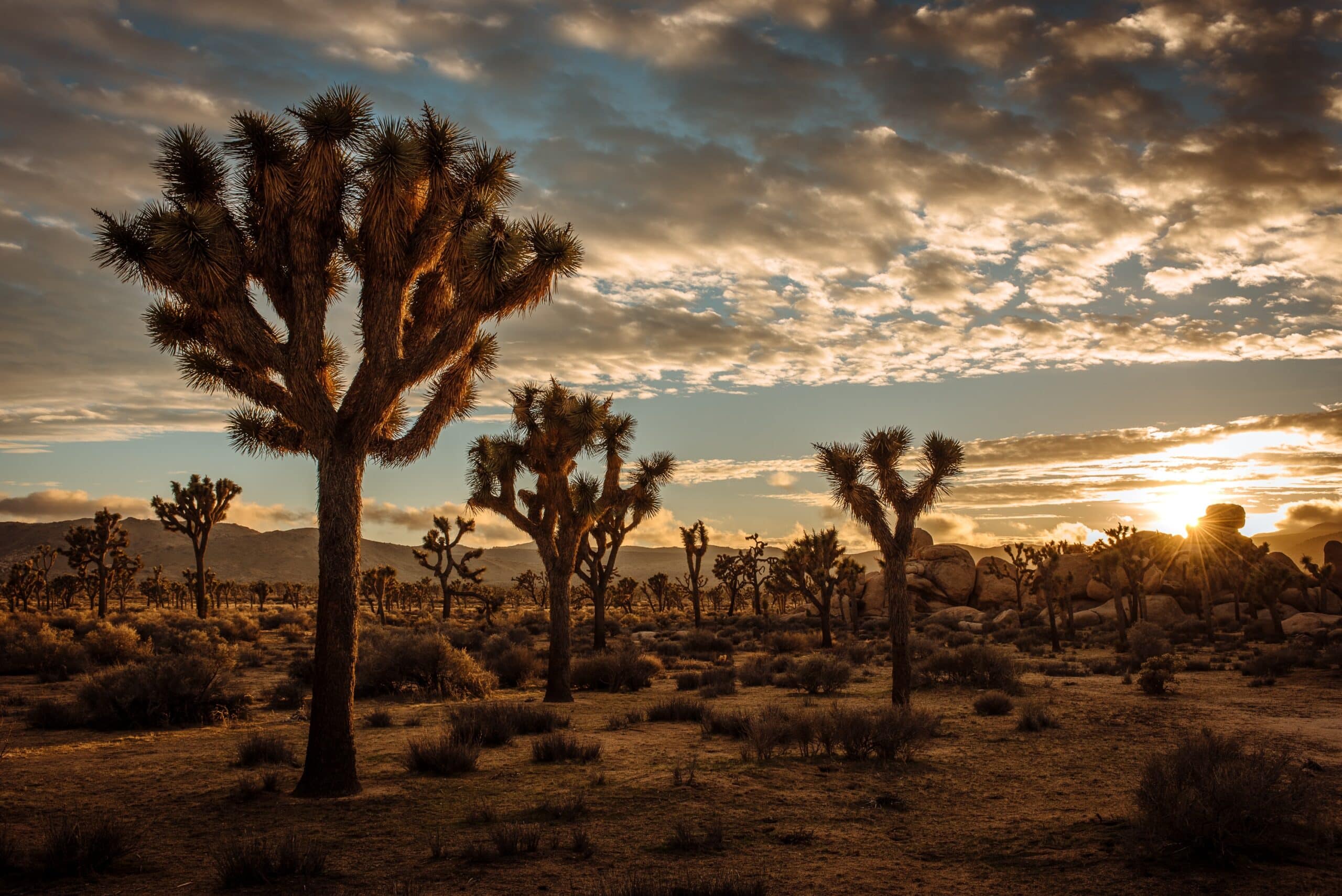We had the chance to spend some time in Joshua Tree National Park this past weekend. It was the culmination of some weeks of planning and discussion, a send-off for one of our favorite collaborators (we love you, Jibby!), and an opportunity to meet some new people with shared interests.
Joshua Tree is an intrinsically magical place, a desert playground that teases the child out of everyone who visits, beckoning a scramble across the iconic rock piles that dot the landscape. We were there to camp and climb and we arrived to good weather on Friday afternoon. We pitched our tents and immediately got to work setting up top-ropes along the face of a 60 foot formation only steps from our fire pit.
We’ve written a lot about Joshua Tree, in particular about our work there with men affected by divorce. You can get caught up here, here, and here. But this time was different. This was about family and friends and celebrating what we have even as we brace ourselves for what is to come, may God have mercy on all of us.
Maybe it wasn’t so different. The common denominators of gratitude and refreshment find their way into every Joshua Tree experience, it seems. And once the sun had set and our fire was lit, we settled into dinner, some campfire games, and eventually our sleeping bags for the remainder of the chilly desert night.

Saturday morning broke cloudy and cool with rain anticipated in the late afternoon. With no time to spare, we roped up another route and cheered one another up the wall. The sky got darker and the very first raindrops fell tentatively onto our faces at around 2 pm, giving us just enough time to take down our anchors and pack up before heading into town for an early dinner.
Once on the road, the rain fell in earnest, quickly flooding the edges of the highway. Vegan wraps at the Yucca Valley Outpost and hot chocolate at Frontier Café were on the menu. We were warm, dry, and in good spirits with a plan to return to camp to gather in our largest tent for some more snacks and conversation. And what tumbled out of that is really the point of this post.
We talked about rhythms and cycles, so readily observable in the wilderness. We were up with the sun and tucking in by nightfall. Our energy rose to meet the warm light and was tempered by the cool dark. Very little of this was conscious.
It was an automatic response within our bodies, mediated by sensory input through our eyes and skin, external information channeled through our nervous system to recalibrate our circadian rhythms. Being outside put us immediately into synchronization with all of local creation.
That’s not a small thing. The study of time on biological systems is called chronobiology:
The clock genes are involved in the generation of the circadian rhythms and the biological clock is synchronized to solar day by direct photic inputs. Various circadian rhythm abnormalities have been demonstrated in mood disorders such as unipolar depression, bipolar depression and seasonal affective disorder.
Okan Çalıyurt
Direct photic inputs.
Our physiology and mental health are regulated in no small measure by light. We are, in point of fact, guided by light.

This is no surprise to the Muslim:
God is the Light of the heavens and the earth. The example of His light is like a niche within which is a lamp; the lamp is within glass, the glass as if it were a pearly, white star lit from [the oil of] a blessed olive tree, neither of the east nor of the west, whose oil would almost glow even if untouched by fire. Light upon light.
God guides to His light whom He wills. And God presents examples for the people.
And God is Knowing of all things.
Q24:35
This is where the conversation turned to alignment, a recognition that our personal rhythms are tied to environmental cycles. Some of these realities were within our awareness. We experience directly the effects of being in certain places or around certain people.
But how many biological feedback loops escape our consciousness? How is it that our bodies regulate salt and sugar, metabolize nutrition, deposit stored energy in the form of fat in perfect symmetry, responding to subtle cues without any prompting or direction from us?
And how is it that, in our arrogance, we can continue to declare ownership of these bodies, these mysterious vessels that operate with such automatic and immediate elegance as to completely reject any notion of our mastery and possession?
The eyes that blink before we are aware of the injurious grain of sand hurtling toward us, the arms that flail to break our fall, the instinctual feeling that all is not well when we are completely without obvious information to confirm this- none of this is under our control.
But it’s real. “And God presents examples for the people.”
There are other cycles. The orbits of the planets and the migratory patterns of waterfowl and the rise and fall of empires, among them. Everything has a rhythm, a cadence, a thrum and heave.

Among Muslims, the frame drum alone has a place as a sacred instrument. Tajweed, or the science of scriptural recitation is concerned exclusively with the rhythm and timing of our vocalization, the elongation or arresting of sound to ensure the proper pronunciation and therefore appropriate transmission of the Divine message.
Light mediates, guides, and directs. Rhythms and cycles maintain and stabilize.
And here we arrive at prayer.
The first obligation of every man or woman bold enough to assume the mantle of Islam is the establishment of prayer, a ritual in cycles synchronized with the position of the sun. This is a periodic acknowledgement as all acknowledgments must be if they are to retain their affirmative function.
We do not suffice ourselves with a single declaration of love. Life is not fueled by a single meal. Maintenance must be periodic, rhythmic, perpetual. Anything less is a denial of the essential reality of cycles in creation.
All is lost in the dissipation of a broken cycle.
The thing is no more. And if that thing is our mind or our body or our spirit, we are lost.
Growth requires the replacement of cycles that are detrimental with cycles that are beneficial.
In Joshua Tree we witness the immediate cycles of night and day and wind and rain juxtaposed against the ancient geological cycles of accretion and erosion. We see how our current moment, no matter how fleeting, has massive implications in the aggregate.
On Sunday morning we met new friends, men and women associated with the Southern California Muslim Climbers community. The meeting was brief and altogether delightful as we bouldered a bit before heading out for the seven-hour drive back to D&T Camp One.
On the road it occurred to us that this may have been one of those transient meetings, like the intrusion of a bit of magma into the surrounding stone, that could trigger the eruption of something far greater in the future.
May God make it so.

Surah Aal-e-Imran, Verse 190:
إِنَّ فِي خَلْقِ السَّمَاوَاتِ وَالْأَرْضِ وَاخْتِلَافِ اللَّيْلِ وَالنَّهَارِ لَآيَاتٍ لِّأُولِي الْأَلْبَابِ
Verily, in the creation of the heavens and the earth, and in the succession of night and day, there are indeed messages for all who are endowed with insight
via iQuran
May Allah keep us connected to His signs through these timely reminders.
Amin!
Lovely